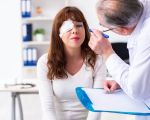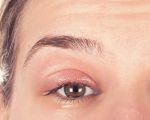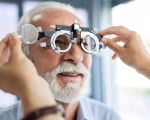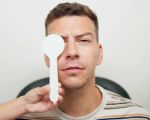Top-Rated Local Eye Doctors for Regular Checkups
- 1. Why Regular Eye Checkups Are Important
- 2. How to Choose the Right Eye Doctor
- 3. Top-Rated Eye Doctors in Your Area
- 4. Common Eye Conditions Diagnosed During Checkups
- 5. How to Prepare for Your Eye Exam
- 6. When to Visit Your Eye Doctor Beyond Regular Checkups
- 7. Maintaining Eye Health Between Checkups
Regular eye checkups are a critical aspect of maintaining your overall health and well-being. Many eye conditions, such as glaucoma or macular degeneration, develop slowly and without obvious symptoms. By the time you notice a problem, it may have already progressed to a more severe stage. Regular checkups with a professional eye doctor help detect issues early, making treatment more effective and less invasive. Furthermore, your eye health is closely linked to your general health, with conditions like diabetes and high blood pressure often showing early signs in your eyes. This article will guide you through why eye exams are essential, how to choose the best eye doctor, and how to make the most of your appointments.
Selecting the right eye doctor is key to ensuring your eye health is properly managed. There are two primary types of eye care professionals: optometrists and ophthalmologists. Optometrists perform eye exams, prescribe corrective lenses, and detect certain eye conditions. Ophthalmologists, on the other hand, are medical doctors who can perform surgeries and treat more complex eye conditions. When choosing an eye doctor, consider your specific needs. If you simply need routine checkups or prescription lenses, an optometrist may be sufficient. However, if you have a more serious condition or require surgery, an ophthalmologist is the better choice. Also, consider their location, availability, reputation, and patient reviews to ensure you find a doctor who makes you feel comfortable and confident in their care.
Finding top-rated local eye doctors is essential for receiving the best care. Many regions have highly rated optometrists and ophthalmologists who are well-equipped to provide comprehensive eye exams. Online review platforms, local health directories, and word of mouth are great ways to identify the best professionals in your area. For example, many patients turn to trusted platforms like Google Reviews or Yelp to read patient testimonials and check doctor ratings. Additionally, national organizations like the American Academy of Ophthalmology and the American Optometric Association offer resources for finding certified and highly regarded eye doctors. When searching for the right professional, prioritize doctors with positive feedback, a wide range of experience, and credentials that match your specific needs.
Regular eye checkups allow your eye doctor to detect common conditions that could otherwise go unnoticed. Some of the most common conditions diagnosed during checkups include:
1. Myopia (Nearsightedness) and Hyperopia (Farsightedness)
These refractive errors affect the ability to focus on objects at certain distances. They are easily diagnosed during an eye exam and corrected with glasses or contact lenses.2. Glaucoma
A condition that increases pressure in the eye, glaucoma can damage the optic nerve and lead to blindness if left untreated. Regular eye exams can help detect it early, when treatments are most effective.3. Cataracts
Cataracts, which cause clouding of the lens, are a common age-related condition. Early detection can help manage symptoms and decide if surgery is needed.4. Diabetic Retinopathy
For individuals with diabetes, regular eye exams are essential for detecting early signs of diabetic retinopathy, a condition that can lead to blindness if not managed.Preparing for an eye exam can help ensure that your visit goes smoothly and that you receive the most accurate results. Here are some tips to get ready:
1. Bring Your Eyewear
If you wear glasses or contacts, bring them with you to the exam. Your doctor may need to evaluate your prescription or check the condition of your current eyewear.2. Prepare Your Health History
Your eye doctor will want to know about your medical history, including any existing health conditions, medications you’re taking, and any family history of eye diseases.3. Know Your Symptoms
If you’re experiencing any vision problems, be sure to mention them. Describe any difficulties you’ve had, such as blurred vision, eye strain, or sensitivity to light, as these can help the doctor make a more accurate diagnosis.While regular checkups are important, there are also times when you should visit your eye doctor outside of your scheduled appointments. These include:
1. Sudden Changes in Vision
If you experience sudden vision changes, such as blurred vision, flashes of light, or a loss of peripheral vision, it’s important to see an eye doctor immediately. These could be signs of a more serious condition.2. Eye Pain or Redness
Persistent pain or redness in the eye can be a sign of an infection or inflammation, which requires professional treatment.3. Eye Injuries
Any injury to the eye should be treated promptly by an eye doctor, especially if there is trauma, foreign objects in the eye, or changes in vision.Maintaining eye health between checkups is just as important as the checkups themselves. A few simple habits can help ensure your eyes stay in good condition:
1. Regularly Hydrate
Drink plenty of water to keep your eyes lubricated and prevent dryness or irritation.2. Protect Your Eyes from UV Light
Always wear sunglasses that block UV rays to protect your eyes from sun damage, which can lead to cataracts or other vision problems.3. Follow Your Doctor’s Advice
If you’re prescribed glasses, contact lenses, or medication, be sure to follow your doctor’s instructions and use them as recommended.In conclusion, regular eye checkups are an essential part of maintaining overall health. By choosing the right eye doctor, preparing properly for your exams, and staying informed about your eye health, you can ensure that your vision remains clear and strong for years to come. For more information on finding top-rated local eye doctors and booking an appointment, visit [Eye Docs] for expert recommendations and services tailored to your needs.








